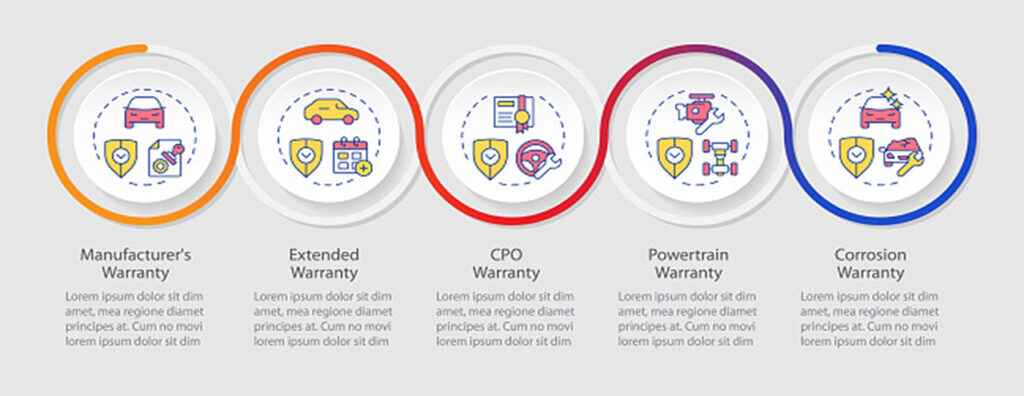
Extended Warranty Car Dealer Sold Did Not Cover the Vehicle I Purchased it for: What Are My Legal Options?
The Shocking Truth About Extended Warranty Fraud in California
Imagine walking into a car dealership, excitement bubbling as you prepare to purchase your dream vehicle. The smooth-talking salesperson assures you that the extended warranty will be your financial safety net, protecting you from unexpected and potentially catastrophic repair costs. You sign on the dotted line, feeling a sense of security. But what if that warranty is nothing more than an expensive piece of paper—worthless from the moment you drive off the lot?
A Nationwide Problem: Confirmed by Investigative Reporting
Recent investigative reporting by KIRO 7 News has blown the lid off a disturbing trend in the automotive industry. In a groundbreaking report (source), investigative journalists revealed a systematic approach by some dealerships to sell extended warranties that become void before the car even leaves the parking lot.
The investigation uncovered a calculated strategy that has been devastating for consumers. Dealerships are not just making mistakes—they are deliberately installing aftermarket parts, selling vehicles, and simultaneously selling extended warranties that become instantly invalid due to those very modifications. This isn’t an occasional oversight; it’s a predatory business practice designed to maximize profits at the expense of unsuspecting buyers.
Warranties Void Before You Leave the Lot
Let’s break down the harsh reality that many California consumers face. Some car dealers are selling extended warranties that become instantly void the moment you drive off the lot. Their method is insidious: they modify the vehicle with aftermarket parts and then sell you a warranty that explicitly excludes vehicles with those exact same modifications.
A Real-Life Nightmare: The Consumer Cost of Dealer Fraud

Consider Sarah’s story (hypothetical but common scenario). A hardworking individual looking to secure reliable transportation, she purchased a used car from a local dealership. The glossy extended warranty seemed like a shield against potential mechanical failures. What she didn’t know—and what the dealer conveniently failed to mention—was that the car already had multiple aftermarket modifications that immediately invalidated her warranty.
The dealer knew about these modifications before the sale. They knew the warranty would be worthless. Yet, they still collected money from both the car sale and the warranty, leaving Sarah exposed to potentially thousands of dollars in unexpected repair costs.
A Real Case: Dealer Knew Warranty Was Void from Day One
A client of ours experienced a nearly identical nightmare. She purchased a vehicle from a California dealership, and the dealer confidently assured her that the extended warranty would protect her in the event of any major issues. What the dealer didn’t mention—or rather, what they deliberately concealed—was that the warranty would be void if the car had any aftermarket parts. And the dealer knew the vehicle had aftermarket parts.
Several months after the purchase, our client’s vehicle broke down with a serious engine issue. The repair cost was over $10,000. When she tried to use her extended warranty, the claim was denied. The reason? The warranty company stated the vehicle had aftermarket modifications, making the warranty invalid.
Confused and frustrated, our client reviewed the original sales paperwork. That’s when she found the smoking gun: the dealer had actually written on the documents that the car had aftermarket parts. They had knowingly sold her a warranty that was void from the moment she signed the contract—and they wrote it down in black and white. This isn’t just unethical; it’s illegal under California law.
Under the Consumer Legal Remedies Act (CLRA), it is unlawful for businesses, including car dealers, to engage in deceptive practices such as misrepresenting the characteristics or benefits of goods or services. The CLRA also prohibits concealing important facts if doing so misleads the consumer. Consumers can recover actual damages, punitive damages, and attorneys’ fees if a violation is proven. The law was created to level the playing field and protect individuals from exactly these kinds of unfair business practices.
Understanding the Extended Warranty Fraud Ecosystem
How Dealers Manipulate the System
The process is disturbingly simple. Dealerships have developed a well-orchestrated approach to maximizing their profits while minimizing their responsibility:
- Aftermarket Modifications: Dealers install aftermarket parts on a vehicle to cut costs or make the car more appealing.
- Warranty Sales: They sell a third-party extended warranty that excludes coverage for vehicles with aftermarket parts.
- Concealment: They either fail to disclose or actively hide the fact that the car has aftermarket parts.
- Profit Twice: Dealers profit from both the sale of the car and the extended warranty, knowing the warranty is void.
It’s a tactic that leaves the consumer paying for coverage that never existed in the first place.
Extended Warranty vs. Service Contract: Demystifying the Terminology

Many consumers use the terms “warranty” and “extended warranty” interchangeably, but there are critical distinctions that can impact your financial protection.
- Manufacturer’s Warranty: Comes standard with new vehicles. It’s backed by the manufacturer and offers comprehensive coverage.
- Extended Warranty: Often marketed by dealers, this term usually refers to a third-party service contract, not a true warranty.
- Service Contract: A separate agreement that promises to pay for certain repairs or services. These are often sold as “extended warranties,” but they are legally classified as service contracts unless they come directly from the manufacturer.
The reliability of a service contract depends on the company selling it. While a manufacturer stands behind its warranty, many third-party service contract providers use fine print and loopholes to deny legitimate claims.
The Legal Landscape: Protecting California Consumers
In California, this practice isn’t just unethical—it’s potentially illegal. Dealers have a legal obligation to be transparent about vehicle conditions and warranty limitations. The state’s consumer protection laws are designed to prevent exactly these types of predatory sales tactics.
Key Legal Considerations
Dealers can be held liable for:
- Intentional Misrepresentation: Selling a warranty known to be void
- Consumer Fraud: Deliberately concealing material information
- Breach of Good Faith: Selling a product with known defects
- Violation of the Consumer Legal Remedies Act (CLRA): Misrepresenting or concealing material facts may entitle you to damages, attorney’s fees, and other compensation under this powerful consumer protection law.
Your Rights as a California Consumer
If you’ve been sold a vehicle with an extended warranty that’s immediately void, you may be entitled to:
- A full refund of the warranty cost
- Compensation for unexpected repair costs
- Potential damages for fraudulent sales practices
- Legal representation to fight back against dealer misconduct
Frequently Asked Questions
Q: How can I identify if my extended warranty might be void? A: Carefully examine your vehicle for aftermarket modifications, review the warranty’s exclusion clauses, and look for any inconsistencies in the dealer’s documentation. If something seems suspicious, it probably is.
Q: What steps should I take if I suspect warranty fraud? A: Document everything. Gather all vehicle and warranty documentation, record all communications with the dealer, and consult with a consumer protection attorney who specializes in automotive fraud.
Q: Is it worth hiring an attorney for a denied warranty claim? A: Absolutely. Many consumer protection attorneys offer free consultations and only get paid if you win. They can help you understand your rights and pursue compensation for fraudulent practices.
Q: What is the difference between an extended warranty and a service contract? A: An extended warranty is typically a misnomer. Most of the time, what is being sold is actually a service contract—a separate agreement to cover certain repairs or services. A true warranty comes from the manufacturer and is included in the purchase price of the vehicle. Service contracts are often sold by third-party companies and come with many limitations and exclusions.
Q: What is the difference between an extended warranty and a dealer or manufacturer warranty? A: A manufacturer warranty is included with the vehicle and backed by the manufacturer. It typically provides broad, reliable coverage. An extended warranty, especially one sold by a dealer or third party, may not be a true warranty and often has more exclusions, especially if the vehicle is used or modified.
Q: Is an extended warranty really a warranty or is it a service contract? A: In most cases, an “extended warranty” is a service contract. Despite the name, it does not extend the original manufacturer warranty but instead is a new contract governed by different terms and usually offered by third-party companies.
Protect Yourself: Red Flags to Watch For
Be wary of dealers who:
- Refuse to provide a complete vehicle modification history
- Present warranties with extensive, complex exclusion clauses
- Pressure you to purchase warranties with minimal explanation
- Avoid putting warranty terms and vehicle condition details in writing
Our Commitment to California Consumers
At the Law Office of Paul Mankin, APC, we’ve witnessed firsthand the devastating impact of these predatory practices. We’re not just lawyers—we’re consumer advocates dedicated to protecting your rights and fighting against automotive fraud.
Don’t Let Dealers Get Away With Fraud
If you’ve been sold a vehicle with an extended warranty that’s immediately void, you’re not alone. We’re here to help you fight back and seek the justice you deserve.
Call Us NOW for a FREE Consultation
- Immediate Case Evaluation
- No Upfront Costs
- We Only Get Paid If We Win
Disclaimer: This article provides general legal information and should not be considered specific legal advice. Each case is unique, and consulting with a qualified attorney is recommended.
Latest Posts
Common Red Flags of Dealer Auto Fraud When Buying a Used Car in California
Buying a used car can be exciting—but it can also be risky if you’re not aware of the common warning signs to watch out for. Unfortunately, some car...
California Dealers Selling Branded Title Vehicles Without Telling You? Here’s What You Must Know
"They Never Told Me the Car Had a Branded Title" A California consumer thought she had found the perfect used SUV at a dealership in Bakersfield. It was...
